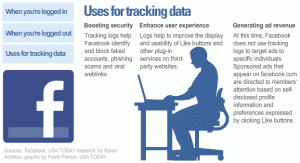In the words of the very same legislators who created the new financial bill, ‘No one will know until this is actually in place how it works’…, said Christopher Dodd, democrat from Connecticut. The new bill gives sweeping powers to the president, whoever it is, to determine what is done with many aspects of American citizen’s lives. ”…it deals with every single aspect of our lives,” added Dodd.
WSJ
After more than 20 hours of continuous wrangling, Congressional Democrats and White House officials reached agreement on the

Lawmaker Christopher Dodd (D), next to senator Richard Shelby.
final shape of legislation that would transform financial regulation, avoiding last-minute defections among New York lawmakers that had threatened to upend the bill.
After months of uncertainty about how the U.S. would craft new rules, the agreement offers the clearest picture since the financial crisis of how markets and the government will interact for decades to come. The common thread: large financial companies are facing a tougher leash.
he bill is expected to have enough support to become law. Both chambers plan to vote next week. The margin in the House and Senate will likely be close because most Republicans are expected to oppose the measure.
If the bill passes, President Barack Obama is expected to sign the package into law by July 4. Thursday’s agreement also gives the president leverage going into a weekend summit of world leaders in Canada, where he will prod other nations to rewrite their rules.
“This is about as important as it gets, because it deals with every single aspect of our lives,” said Sen. Christopher Dodd (D., Conn.), a chief architect of the compromise.
In two important ways, the agreement is tougher on the banking industry than officials in the Treasury Department anticipated when they first drafted their version of the bill 12 months ago.
Lawmakers agreed to a provision known as the “Volcker” rule, named after former Federal Reserve Chairman Paul Volcker, which prohibits banks from making risky bets with their own funds. To win support from Sen. Scott Brown (R., Mass.), Democrats agreed to allow financial companies to make limited investments in areas such as hedge funds and private-equity funds.
The move could require some big banks to spin off divisions, known as proprietary-trading desks, which make bets with the firms’ money.
The bill also includes a provision, authored by Sen. Blanche Lincoln (D., Ark), which would limit the ability of federally insured banks to trade derivatives. This provision almost derailed the bill following vehement objections from New York Democrats. Ms. Lincoln worked out a deal in the early hours of Friday morning that would allow banks to trade interest-rate swaps, certain credit derivatives and others—in other words the kind of standard safeguards a bank would take to hedge its own risk.
Banks, however, would have to set up separately capitalized affiliates to trade derivatives in areas lawmakers perceived as riskier, including metals, energy swaps, and agriculture commodities, among other things.
A panel of 43 lawmakers spent two weeks reconciling differences between a bill that passed the House in December and the Senate in May. They concluded their negotiations along party lines at a little after 5 a.m. ET in a Capitol Hill conference room marked by tension, levity and exhaustion. Senior administration officials, including Treasury Department Deputy Secretary Neal Wolin, arrived late in the afternoon to try and quell the feud between the New York delegation and Ms. Lincoln.
Major components of the bill, including the derivatives provisions, were negotiated in the hallway of the Dirksen Senate Office Building as the clock neared midnight. At one point, after hearing of an offer from Senate Democrats, Rep. Melissa Bean (D., Ill.) exclaimed: “Are you flipping kidding me? Are you flipping kidding me?”
Democrats hailed the agreement as a tool to prevent the kind of taxpayer-funded bailouts that stabilized the economy in 2008 but left divisive scars. Many Republicans said the bill could have unintended consequences, crimping financial markets and access to credit.
“My guess is there are three unintended consequences on every page of this bill,” Rep. Jeb Hensarling (R., Texas) said of the nearly 2,000-page bill.
The deal comes as the banking industry is still struggling to regain its footing. Hundreds of banks have been dragged down by bad loans and investments. The violent restructuring of the U.S. banking sector two years ago has left just a few companies controlling a vast amount of the deposits, assets and financial plumbing of the country.
Government-controlled Fannie Mae and Freddie Mac remain a multibillion dollar drain on the U.S. Treasury, and largely untouched by this proposal. And the banking sector in parts of Europe remains fragile.
The legislation would redraw how money flows through the U.S. economy, from the way people borrow money to the way banks structure complicated products like derivatives. It could touch every person who has a bank account or uses a credit card.
It would erect a new consumer-protection regulator within the Federal Reserve, give the government new powers to break up failing companies and assign a council of regulators to monitor risks to the financial system. It would also set up strict new rules on big banks, limiting their risk and increasing the costs.
The legislation gives the Securities and Exchange Commission new powers to regulate Wall Street and monitor hedge funds, increasing the agency’s access to funding. The Commodity Futures Trading Commission would also have new powers under the bill, which would try and force most derivatives to face more scrutiny from regulators and other market participants.
To pay for some of the new government programs, the bill would allow the government to charge fees to large banks and hedge funds to raise up to $19 billion spread over five years. The assessment is designed to eventually pay down a part of the national debt.
The broad contours had been set for weeks and mostly mirror a proposal the White House has pushed since last summer. But the last few days represented a mad dash of political maneuvering to iron out final details.
Negotiations went into Friday morning, with New York Democrats and White House officials meeting to address the bill’s potential impact on New York, which relies on the financial industry for employment and tax revenue.
To win broader support, Democrats softened the bill’s impact on community banks, auto dealers, and small payday lenders and check cashers.
From the beginning, lawmakers opted against a dramatic reshaping of the country’s financial architecture. Instead, they moved to create new layers of regulation to prevent companies from taking on too much risk.
For example, regulators decided not to order a sweeping consolidation of the regulatory agencies policing finance. They also decided not to bust up large financial companies, despite pressure from liberal groups.
But they did create a process for seizing and dismantling faltering companies, tools the government lacked in 2008 during the seemingly chaotic events surrounding Bear Stearns, Lehman Brothers, and American International Group Inc.
Democrats are banking on stronger government regulators to constrain risk in the financial system and prevent a future banking crisis—or at least blunt its impact.





